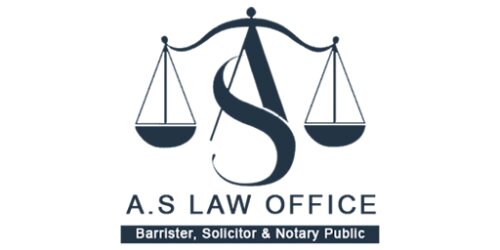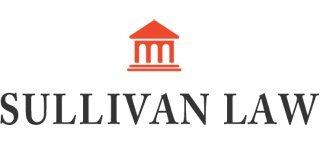Best Conveyancing Lawyers in Winnipeg
Share your needs with us, get contacted by law firms.
Free. Takes 2 min.
Free Guide to Hiring a Real Estate Lawyer
List of the best lawyers in Winnipeg, Canada
About Conveyancing Law in Winnipeg, Canada
Conveyancing is the legal process of transferring property ownership from one party to another. In Winnipeg, Canada, conveyancing encompasses both the sale and purchase of residential and commercial real estate. The process involves preparing and reviewing documents, conducting property searches, ensuring clear title, and registering the property transfer with Manitoba’s land titles system. Conveyancing law helps protect buyers and sellers throughout the real estate transaction and ensures that all legal requirements are met.
Why You May Need a Lawyer
Conveyancing can be complex, and several scenarios may require professional legal help in Winnipeg. You may need a lawyer if you are buying or selling a home, dealing with a mortgage or refinancing, transferring property within a family, resolving disputes over property boundaries or ownership, or if there are irregularities on the title. Legal professionals are well-versed in Manitoba’s unique property laws and can help ensure a smooth, lawful transaction, prevent costly mistakes, and protect your interests during negotiations and finalization of the sale.
Local Laws Overview
In Winnipeg, conveyancing is governed by legislation at both the provincial and municipal levels. Key statutes include the Manitoba Real Property Act, which sets out procedures for land registration and defines how property titles are transferred and recorded. The Land Titles Office in Winnipeg administers the Torrens System, meaning all property ownership is established and guaranteed by the government through registered titles. Local laws also require disclosure statements, compliance with zoning bylaws, and proper handling of property taxes and utility adjustments. A lawyer ensures these legal obligations are met and that all documents are accurately prepared and filed.
Frequently Asked Questions
What does a conveyancing lawyer do?
A conveyancing lawyer manages the legal aspects of property transactions, including drafting and reviewing documents, handling land title registrations, conducting due diligence, and ensuring all legal and financial obligations are fulfilled.
Do I need a lawyer to buy or sell a house in Winnipeg?
While not strictly required by law, it is highly advisable to retain a lawyer to minimize risks, avoid errors, and comply with local regulations throughout the transaction.
What documents are needed for conveyancing?
Essential documents include the agreement of purchase and sale, title deed, property disclosure statement, mortgage papers, and government-issued ID, among others specific to each transaction.
How long does the conveyancing process take?
The process typically takes between four to eight weeks, depending on the complexity of the transaction and the timely receipt of all necessary information and documents.
What are common issues that can delay or complicate conveyancing?
Title defects, outstanding taxes or liens, zoning issues, undisclosed easements, unpaid utility bills, and incomplete documentation can all create delays or complications.
What is the Land Titles Office?
The Land Titles Office is a branch of the provincial government that registers and records all property ownership and transactions, ensuring legal title is clear and accurate.
Who pays the legal fees in a conveyancing transaction?
Typically, each party pays their own legal fees. Buyers are responsible for their legal costs, and sellers cover their own. Costs may vary according to the specifics of the transaction.
Are there taxes or fees associated with property transfers in Winnipeg?
Yes, the primary cost is the Land Transfer Tax, which is calculated on a sliding scale based on the purchase price. There may also be registration fees and legal disbursements.
What is a Statement of Adjustments?
A Statement of Adjustments is a document prepared by lawyers for both parties detailing the final purchase price and adjustments for property taxes, utilities, and other expenses.
Can a lawyer help if there are problems after the sale?
Yes, your lawyer can help resolve post-completion issues such as undisclosed defects, title discrepancies, or unpaid bills by advising on your legal rights and available remedies.
Additional Resources
For further assistance, you can consult the Manitoba Land Titles Office for information about land registration, the Law Society of Manitoba for lawyer referrals and standards, and the Winnipeg Real Estate Board for local market insights. Consumer Protection Office Manitoba can provide guides on property transactions and your rights as a buyer or seller.
Next Steps
If you require legal assistance in conveyancing, consider gathering all relevant documents related to your property transaction. Contact a qualified conveyancing lawyer in Winnipeg to discuss your situation and receive tailored legal advice. Most law firms offer initial consultations and can explain the process, fees, and timeline. Acting early can ensure a smoother experience and minimize potential risks during your real estate transaction.
Lawzana helps you find the best lawyers and law firms in Winnipeg through a curated and pre-screened list of qualified legal professionals. Our platform offers rankings and detailed profiles of attorneys and law firms, allowing you to compare based on practice areas, including Conveyancing, experience, and client feedback.
Each profile includes a description of the firm's areas of practice, client reviews, team members and partners, year of establishment, spoken languages, office locations, contact information, social media presence, and any published articles or resources. Most firms on our platform speak English and are experienced in both local and international legal matters.
Get a quote from top-rated law firms in Winnipeg, Canada — quickly, securely, and without unnecessary hassle.
Disclaimer:
The information provided on this page is for general informational purposes only and does not constitute legal advice. While we strive to ensure the accuracy and relevance of the content, legal information may change over time, and interpretations of the law can vary. You should always consult with a qualified legal professional for advice specific to your situation.
We disclaim all liability for actions taken or not taken based on the content of this page. If you believe any information is incorrect or outdated, please contact us, and we will review and update it where appropriate.














